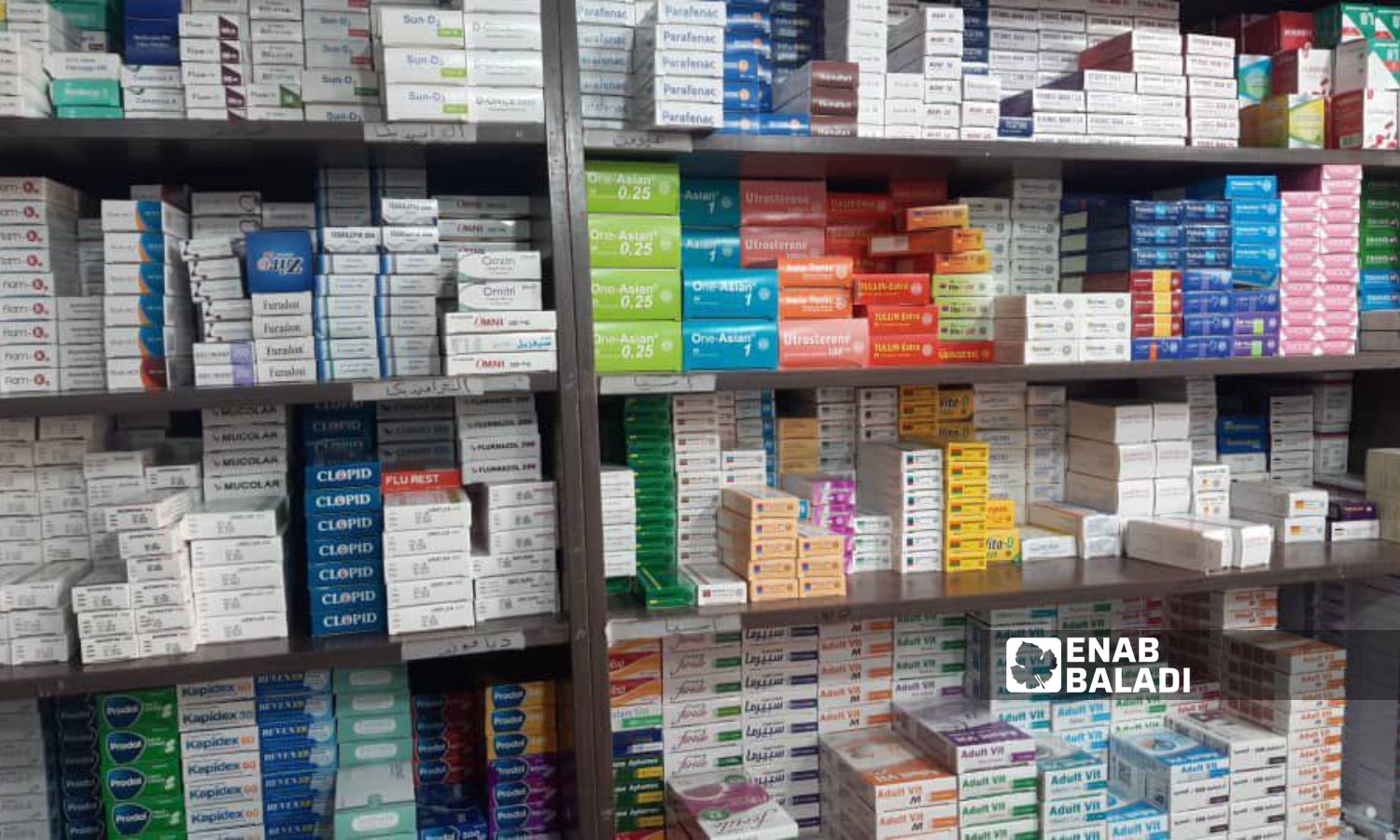



Daraa – Halim Muhammad
Ali al-Azzam (45 years old) admitted his six-month-old son to the hospital due to his severe health condition after developing acute pneumonia, despite having him seen at a pharmacy where he lives in the western countryside of Daraa.
The medicines prescribed by the pharmacist did not help in curing the child but rather exacerbated his health condition, according to what al-Azzam told Enab Baladi.
He mentioned that he resorted directly to the pharmacy to save the cost of the doctor’s examination fee and the transportation cost of taking his son to the clinic, as he needs a car to transport him to Tafas city, which costs 100,000 Syrian pounds. Moreover, most areas in the western countryside of Daraa do not have specialized doctors available; therefore, the destination is either Daraa city or Tafas city.
Al-Azzam, who works as a farmer, acknowledges that seeing a doctor is better for diagnosis and accurately determining the right medications, but he feels compelled to do otherwise.
Most residents in Daraa directly go to pharmacies for diagnosing some illnesses and obtaining medications, to avoid paying for the doctor’s examination fee, which ranges between 20,000 and 50,000 Syrian pounds. This practice is commonplace across most of Syria, especially in rural areas.
Some people Enab Baladi met said that they resort to the pharmacy to avoid waiting at the clinic. Also, transporting the patient requires a private car that costs no less than 50,000 Syrian pounds ($1 equals 14,650 Syrian pounds), yet going for examination at a pharmacy carries several health risks.
Daraa governorate, especially in the countryside, is experiencing a shortage of specialized staff in pharmacies, with some considering them as commercial centers where medicines are sold.
Mohammad al-Mustafa (65 years old), a resident of Tal Shihab in the western countryside of Daraa, told Enab Baladi that he visited a pharmacy to buy medicine for high blood pressure and did not find it. The pharmacist gave him a substitute. Before taking the medicine, al-Mustafa read the accompanying leaflet and found that the medicine was intended for stomach issues.
Al-Mustafa decided to rely on asking a doctor for any prescription he wants to take and also to look for a pharmacy that has a qualified and certified pharmacist.
Said (50 years old), a resident of Tafas city, told Enab Baladi that he visited the pharmacy more than three times to diagnose persistent headaches, and the pharmacist only provided him with painkillers. Upon consulting a doctor, it turned out that he had a middle ear infection, which had reached advanced stages.
Said added that he paid a price for medications that were multiples of the doctor’s examination fee, which did not exceed 20,000 Syrian pounds.
A Pharmacist in Daraa al-Balad, who requested anonymity for security reasons, told Enab Baladi that he treats cases of influenza and known inflammations such as pharyngitis and tonsillitis and guides patients to specialists for the diseases that require it.
Doctor Ziad al-Abazeed, who has a clinic in Daraa al-Balad, told Enab Baladi that more than 80% of his patients visit pharmacies before seeing a doctor. He added that the pharmacist takes on the role of the doctor in diagnosing the medical condition without having the knowledge of clinical diagnosis that a doctor conducts, nor understanding the diseases or the patient’s allergy tests.
Al-Abazeed added that he examined cases of poisoning due to drug interaction caused by the pharmacist’s prescription and pointed out the need for medical supervision, awareness, and community education to avoid the health risks of random treatment and its potential dangers to the patient’s life.
The doctor explained that the pharmacist attempts to give the patient more than one medical prescription, and after failing to treat them, he directs them to a doctor, by which time the patient’s health has significantly deteriorated, suffering from medication interaction, in addition to incurring greater financial costs due to unnecessary medications.
The doctor told Enab Baladi that the greatest danger is when the seller in the pharmacy does not hold a specialization certificate, as an error in the medication can endanger the patient’s life, especially if the pharmacist is ignorant of the chemical compositions.
Sometimes the pharmacist has to give a substitute for the medication with the same compositions, and this depends on the experience of the pharmacist holding a pharmacy degree.
Despite turning to pharmacies, the price of medications is not cheap compared to the living and economic situation of the inhabitants. The Ministry of Health in the Syrian regime’s government raised the prices of medicines between 70 and 100% in December 2023.
The head of the Damascus Pharmacists’ Syndicate, Hasan Dirowan, told the government newspaper, Tishreen, that the prices of pills, capsules, and syrups increased by 70%, while ointments, creams, and bronchial sprays went up by 100%.
if you think the article contain wrong information or you have additional details Send Correction